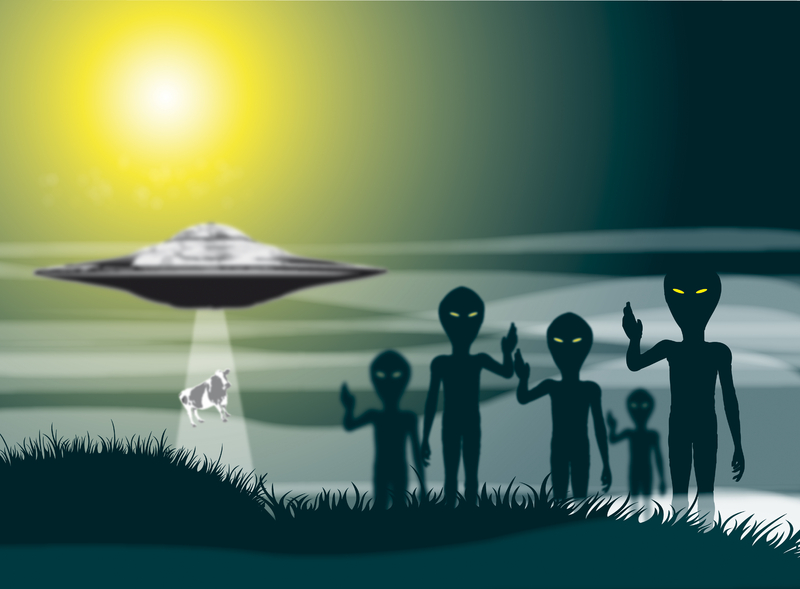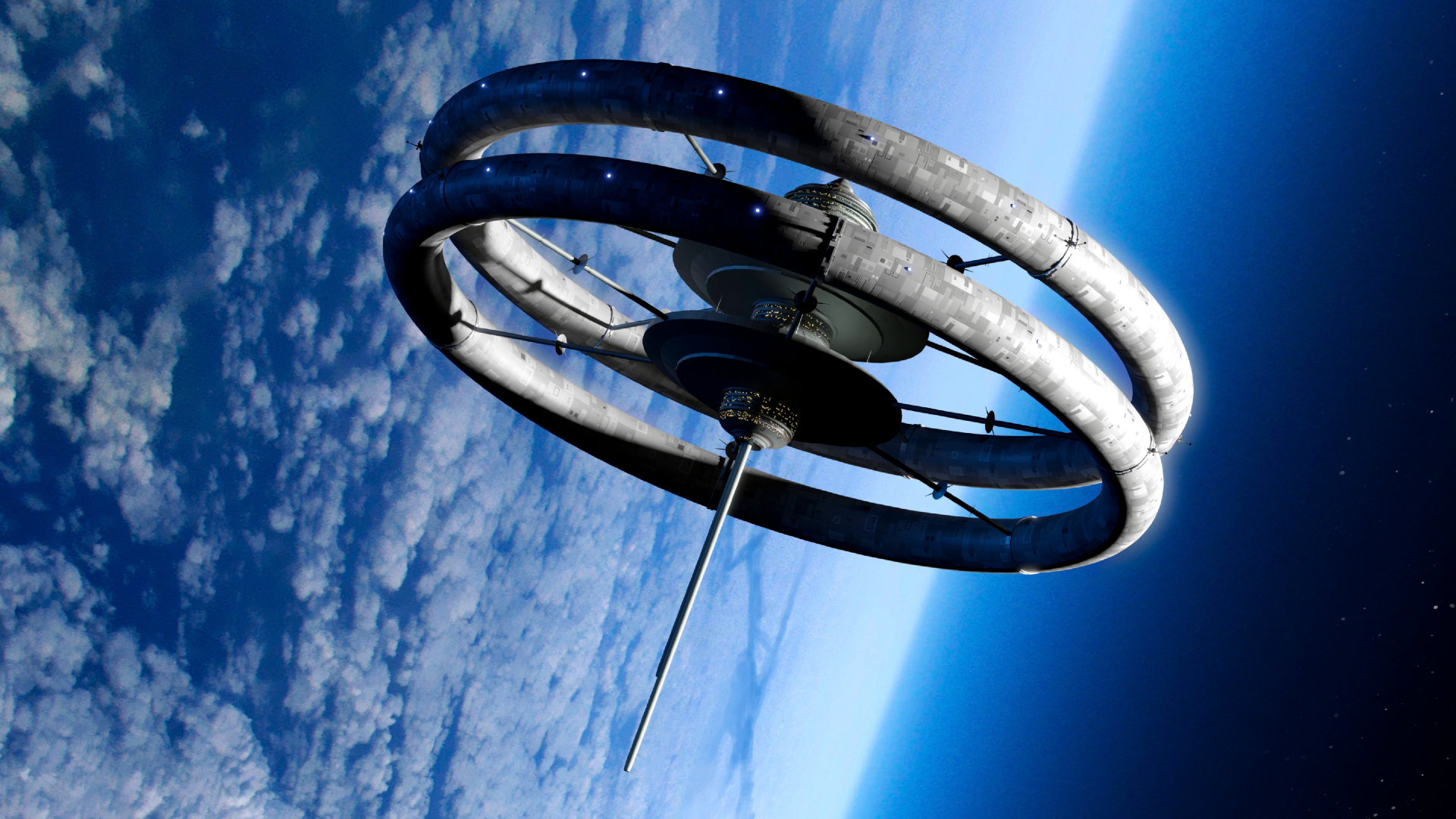Study: If We're Not Alone, We Should Fear the Aliens

When considering the prospect of alien life, humankind should prepare for the worst, according to a new study: Either we're alone, or any aliens out there are acquisitive and resource-hungry, just like us.
These two unpalatable options are pretty much the only possibilities, according to the new study. That's because evolution is predictable, and alien biospheres should thus produce intelligent creatures much like us, with technological prowess and an ever-increasing need for resources.
But the fact that we haven't run across E.T. yet argues strongly for the latter possibility — that we are alone in the universe's howling void, the study suggests.
"At present, as many have observed, it is very quiet out there," study author Simon Conway Morris, of the University of Cambridge, told SPACE.com in an e-mail interview. "And given many planetary systems are billions of years older than ours, I'd expect us to be best grilled on toast back in the Cambrian."
Evolution is predictable
Life on Earth has exploited just about every conceivable niche, tolerating extremes of temperature, salinity, pH and pressure. Conway Morris makes the case that Earth life thus exists close to the physical and chemical limits of life anywhere. [The Weirdest Life on Earth]
Further, Conway Morris says, evolution operates predictably, producing relatively predictable outcomes. These two suppositions argue that alien life, if it exists, should be fairly similar to terrestrial life, generating intelligent beings much like us. These aliens may look unfamiliar, but any differences would be skin-deep.
Breaking space news, the latest updates on rocket launches, skywatching events and more!
There is reason to be wary of such creatures, according to Conway Morris.
"If intelligent aliens exist, they will look just like us, and given our far-from-glorious history, this should give us pause for thought," he writes in the study, which was published today (Jan. 10) in the journal Philosophical Transactions of the Royal Society A.
Other researchers have raised this same point. The eminent physicist Stephen Hawking, for example, recently warned that aliens may be more interested in mining our planet for vital resources than in getting to know us.
Are we alone?
The prospect of greedy, imperialistic aliens is a troubling one, but Conway Morris thinks another scenario — also depressing — is more likely to be true.
We're likely alone in the universe, he writes. The cosmos is almost inconceivably vast, likely harboring at least 100 billion galaxies. And our solar system is relatively young compared to the rest of the universe — 4.6 billion years versus 13.7 billion years.
So there should have been plenty of time and opportunity for many alien civilizations to get a sizable evolutionary head start. The fact that E.T. seemingly hasn't contacted us is a strong indication that he's just not out there, according to Conway Morris.
The huge distances that would likely separate potential alien civilizations don't present an insuperable barrier to contact, Conway Morris said.
"At least so far as this galaxy is concerned, a distance of circa 100,000 light years doesn't seem insurmountable, given a relatively slow diffusion rate and a geometrical rate of establishment of colonies," he said.
Welcoming aliens with open arms?
While Conway Morris' study recommends caution when considering the possibility of alien life, another new report suggests that humanity would probably be happy to learn that we're not alone.
Writing in the same issue of the Philosophical Transactions of the Royal Society A, psychologist Albert Harrison predicts that the discovery of alien life — should it happen anytime soon — would be more likely to inspire delight than incite pandemonium here on Earth.
That's partly because E.T. would probably seem pretty non-threatening, and fairly abstract, when we first discover it. The first evidence of alien life would likely be a microbe from Mars or other solar system body, or an electromagnetic signal snagged out of the air, according to Harrison.
"This is how we're looking systematically for extraterrestrial life," Harrison, a psychology professor at the University of California, Davis, told SPACE.com. "Because this is where we're looking, this is where we're likely to find it."
Either way, such a discovery would be a far cry from "War of the Worlds"-style invading spaceships. There may be some ambiguity and uncertainty involved, especially with an electromagnetic signal, which could be tough to interpret. But that shouldn't be a major problem, according to Harrison.
"There will be varied responses, but I think that on the whole we'll take it well," he said. "You have to remember, there are adaptive mechanisms that swing into play."
And finding E.T. might not be a single, drama-packed event, he added. Rather, it could occur as most science does, with a lot of back-and-forth discussions and appraisals of the evidence.
"What I think could very well happen is that slowly, over time, different people start concluding that we're not alone," Harrison said. "Some people have already concluded it. It won't necessarily have to be a big flashpoint, or like a bomb going off. It'll be more and more people saying, 'Gee, the evidence does show that they're out there.'"
Preparing for 50 years
Another reason people would likely take the discovery of E.T. well, according to Harrison, is what has happened in the last 50 years. Advances in technology, spaceflight, space science and our understanding of the cosmos have prepared us for the possibility that we are not alone. [Top Spaceflight Stories of 2010]
"This creates the sense that anything could be possible," Harrison said. "And it creates the perceptions, I think, that E.T. may be out there, and that we'll eventually have the technological means to detect him."
For his part, Harrison is more sanguine than Conway Morris about the possibility of E.T.'s existence. Aliens may well be hard to find in such a vast universe, especially since we don't know exactly what we're looking for.
"It's that needle in a cosmic haystack," Harrison said. "Maybe they're just too far away, and we'll never run into them. There are a lot of unknowns."
And, though he doesn't advocate letting our guard down, Harrison is not quite as worried about aliens' possible malignant intentions as Conway Morris is. It's not necessarily inevitable that alien civilizations advance to stages of interstellar imperialism, cruising the cosmos for resources, Harrison said.
Despite the atrocities leading the news every night, societies here on Earth seem to be trending more toward peaceful coexistence, Harrison said. And even if an alien civilization got greedy and imperialistic, there's no guarantee it would be able to run roughshod over its neighbors.
"It's possible to have very acquisitive civilizations out there," Harrison said. "Maybe they get to a certain point, but they may collapse or be beaten back. No one civilization is necessarily going to take over, because there will be coalitions of other civilizations that will keep them in check."
People around the world seem to share Harrison's more positive outlook. In the new study, he cites one poll that found that 86 percent of Americans believe that aliens are more likely to be friendly than hostile.
Maybe most of us have a bead on aliens. Or maybe we're just optimists — or suckers.
You can follow SPACE.com senior writer Mike Wall on Twitter: @michaeldwall.

Michael Wall is a Senior Space Writer with Space.com and joined the team in 2010. He primarily covers exoplanets, spaceflight and military space, but has been known to dabble in the space art beat. His book about the search for alien life, "Out There," was published on Nov. 13, 2018. Before becoming a science writer, Michael worked as a herpetologist and wildlife biologist. He has a Ph.D. in evolutionary biology from the University of Sydney, Australia, a bachelor's degree from the University of Arizona, and a graduate certificate in science writing from the University of California, Santa Cruz. To find out what his latest project is, you can follow Michael on Twitter.
